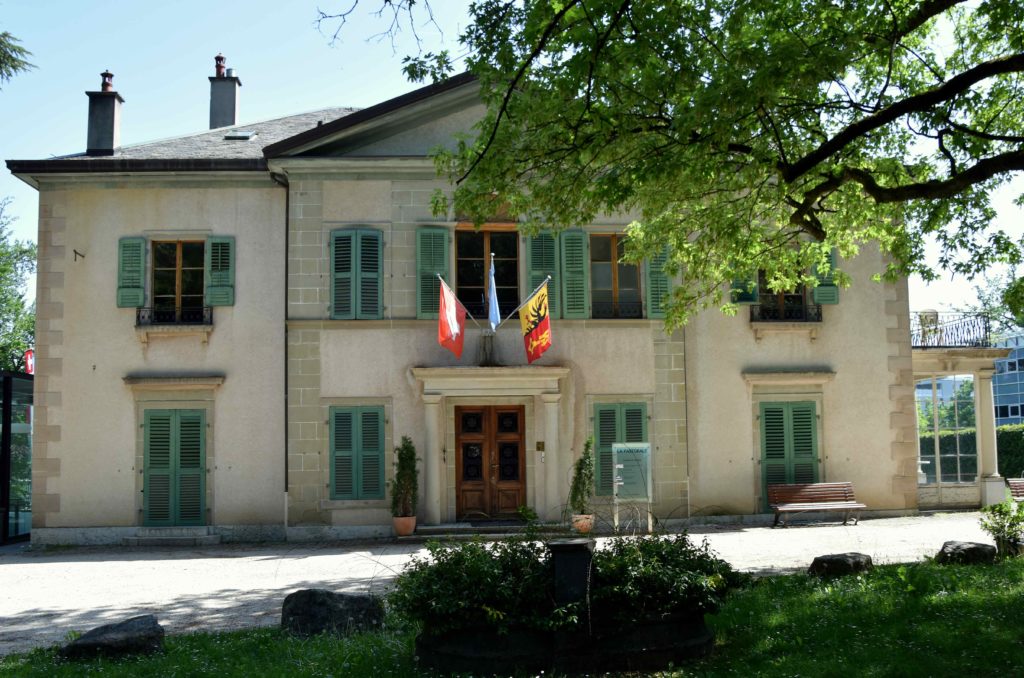Services for NGOs
CAGI assists international non-governmental organizations (NGOs) established or wishing to establish themselves in the Geneva region.
- Home
- Services
- Services for NGOs
- Internships
Internships
The purpose of an internship is to enable the intern to acquire the practical work experience they need to complement a course of academic study.
In Geneva, internships are subject to the minimum wage, with the exception of internships undertaken as part of a recognized academic or school training program, a professional training program or a socio-professional integration program meeting the conditions set by the Conseil de surveillance du marché de l’emploi (CSME) (art. 56E RIRT).
According to Swiss law (Labour Code and Accident Insurance Act), interns enjoy the same rights as permanent employees.
Work in Switzerland for foreigners is regulated and a work permit must be obtained from the eighth day of professional activity (including internship) whether paid or not. The employer must apply for a work permit to the competent cantonal authority, in Geneva the Office cantonal de la population et des migrations (OCPM).
The conditions and process for issuing a work permit depend on the future intern’s nationality, country of residence, and the purpose of their stay.
A. Interns not resident in Switzerland
EU/EFTA Nationals
A facilitated process is in place for citizens of European Union (EU) and European Free Trade Association (EFTA) member countries. Employers must apply for a work permit through the OCPM before the start of the internship using form M (if the intern will be living in Geneva during the contract) or online (if the intern will live across the border in France). If the intern is going to live in canton of Vaud, employers must apply for a work permit through the Service de la population du canton de Vaud (SPOP).
If the internship contract is for less than 90 days, the employer may simply submit a notification procedure for short-term work in Switzerland.
Non-EU/EFTA Nationals
If the intern is a citizen of a country outside the EU/EFTA, the employer must apply through the OCPM using form M. The future intern may not begin work until authorised to do so by the cantonal and federal authorities. It is recommended to submit the permit application 6 to 8 weeks before the start of the internship.
The following cumulative conditions must be met:
- Intra-curriculum internship: the internship must be part of the studies. Exceptionally, an internship carried out shortly after the end of the studies and presenting a significant interest for International Geneva may be accepted if a training plan is provided and that it is paid the minimum wage.
- Remuneration: the NGO must guarantee a monthly income of CHF 2’660 to the intern. Either the NGO pays the remuneration directly, or the NGO ensures that the intern receives a monthly amount of CHF 2’660 from his/her university or another organization for the completion of this internship. If the amount of the scholarship is lower, it is up to the NGO to supplement this amount up to a maximum of CHF 2’660. It should be noted that a reasonable part of the remuneration may also be paid by the employer in kind (e.g. housing, meals, transit pass, employee’s share of social security contributions, and mandatory healthcare insurance). The amount of CHF 2’660 corresponds to the average monthly expenditure budget for studying in Geneva (source: University of Geneva).
- Duration: the duration of the internship should generally not exceed 4 months. Exceptionally, it may be longer than 4 months if the intern is a master’s student and if the request is of significant interest to International Geneva.
B. Intern resident in Switzerland for study
Internship as an integral part of studies (intra-curriculum)
Students holding a permit B for studies who may carry out an internship as part of their studies (according to the study plan) may be authorized by the OCPM directly as long as it does not exceed half of the complete training. The request must be submitted to the OCPM using form E (2nd page), accompanied by a certificate from the school stating that the internship is an integral part of the studies (e.g.: compulsory 3-month internship as part of the UNIGE’s International Organizations-MBA) or earns ECTS credits. Students who are EU/EFTA nationals may start their internship as soon as the form has been submitted to the OCPM (or to the Service de la population du canton de Vaud (SPOP) if the EU/EFTA citizen resides in the canton of Vaud). Students who are non-EU/EFTA nationals must apply for authorization before taking up employment, and wait until they receive the work authorization from the OCPM before they may start their internship (regardless of the canton of residence of the third-country national student).
Ancilliary activities (extra-curricular internship)
Ancillary work may be authorized if the student is enrolled in a Swiss university or university of applied science, if the school or university management certifies that this activity is compatible with the course of study and does not delay its completion, and if the working conditions and salaries are respected (minimum wage).
EU/EFTA Nationals
Students enrolled in a Swiss university or a Swiss university of applied sciences and residing in Switzerland (B student permit) who wish to carry out an internship or job outside of the curriculum must submit an application for a work permit to the OCPM (form E – ancillary activity). This authorization allows students to work a maximum of 15 hours per week during class periods and full-time during university vacations.
Non-EU/EFTA Nationals
Students citizens of non-EU/EFTA countries are forbidden to seek paid employment during the first 6 months from their arrival in Switzerland. Thereafter, students wishing to carry out an extra-curricular internship or job must apply for a work permit from the OCPM ( form E – ancillary activity). This authorization allows students to work a maximum of 15 hours per week during class periods and full-time during university vacations.
Fees
A fee of CHF 65.- is charged for EU/EFTA nationals and CHF 95.- for third-country nationals. The employer acts jointly and severally with the employee.
Under Swiss law, the employment relationship during an internship is governed by labour law, according to the usual terms of employment contracts. The employer is therefore required to comply with the obligations incumbent upon him/her under articles 319 et seq. of the Code of Obligations and the Labour Code.
In terms of insurance and social security contributions, the employer is also required to comply with the obligations set out in federal and cantonal law. These obligations relate to AVS/AI/APG contributions (old-age, invalidity, and loss of income insurance schemes), occupational accident insurance, non-occupational accident insurance, and occupational pension plans.
A. Remuneration
Under article 39J, letter b, of the Law on Inspection and Labor Relations (LIRT), internships that are part of a training or integration program are not subject to the minimum wage.
Recognized training or integration internships
Any other internship shall be considered as a job subject to the minimum wage. Fixed at 23.- francs gross per hour when it came into force, the minimum wage according to the LIRT has been indexed to 24.59 francs gross per hour on January 1, 2026.
B. Social insurance and accident insurance
The payment of a salary implies that the intern is affiliated with the various compulsory social insurances (see the page “Social insurance” for more information). However, there are exemptions that allow, in specific cases, not to have to deduct certain social security contributions. For example, when income does not exceed CHF 2’300 per year, compulsory insurance will only be collected at the request of the insured. Similarly, when the intern has not entered the year of their 18th birthday, none of the above-mentioned social security contributions need be deducted.
In principle, an intern’s salary is subject to Occupational pension fund (LPP) contributions only when the contract is for longer than three months, the intern receives a monthly salary of more than CHF 1’762 from the same employer (2018 value), and the intern is over the age of 17 (LPP art. 2 and 7 and OPP2 art. 1j – b).
With regard to accident insurance, according to article 1a of the Federal Law on Accident Insurance (LAA), interns (just like other workers employed in Switzerland, including apprentices and volunteers) must be compulsorily insured against accidents. Thus, the employer will be obliged to subject the intern to accident insurance and, therefore, to pay a minimum contribution set by the LAA even if the intern does not receive any salary (art. 115 paragraph 1 letter b OLAA).
The intern is required to join a Swiss health insurance company within three months of entering Switzerland. However, if the internship contract is less than 3 months and the intern’s health insurance coverage is equivalent to the Swiss health insurance, the obligation to insure is waived.
For more information, consult the brochure of the Federal Office of Public Health (FOPH), Compulsory health insurance in brief.
Internship contracts fall under the same legal provisions as regular employment contracts (article 319 and following of the Swiss Code of Obligations – CO). The internship contract must, at a minimum, contain the following elements:
- training objectives and nature of the occupation (specifications, work plan),
- duration of the contract (start and end date of the internship),
- weekly working hours,
- reference person,
- remuneration paid and list of benefits offered by the organization (e.g. catering, reimbursement of transport and accommodation expenses, etc.) as well as the terms of its payment,
- conditions for issuing an internship certificate,
- name of the parties signing the contract (tripartite contract).
Collaboration between NGOs and academic institutions

Opportunities for NGOs in International Geneva to collaborate with the University of Geneva and the Geneva Graduate Institute.
CAGI Recruitment Platform

The CAGI Recruitment Platform displays jobs, internships and voluntary positions offered by Geneva-based NGOs as well as local contracts offered by Permanent Missions and Delegations.

MORE INFORMATION :
- Internship and first jobs (OCIRT): definitions and applicable working conditions (2024)
- Hiring of interns and minimum wage: information session in collaboration with the Maison Internationale des Associations (MIA) (2021)
- Hiring an intern: information on the website of the canton of Geneva
- Labour Inspection and Relations Act (LIRT) of the Republic and canton of Geneva
- Regulations for the application of the law on inspection and labour relations (RIRT) of the Republic and canton of Geneva
- How can "Espace Entreprise" interns help my NGO ?
Other useful information
to recruit and employ staff
CAGI Recruitment Platform
Hiring assistance
Social insurances
Swiss labour law
Tax regime for employees
Volunteering
Work permit and visa
Young professionals agreements
CAGI services
for NGOs and Permanent Missions

Contact
By appointment only: Monday to Friday from 9 am to 12 pm / 2 pm to 4:30 pm
Access by public transports (TPG) – lines 5, 8, 20, 22, 60, 61: arrêt Appia.
No parking on site.
Founded by the Swiss Confederation and the Republic and Canton of Geneva, the International Geneva Welcome Centre is the single entry point for the support and integration of employees of International Geneva and their families, NGOs and visiting delegates.